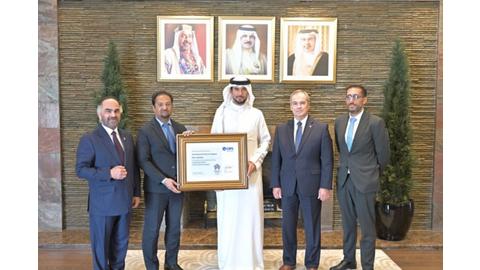Assets under management in Middle East rise 16pc

Assets under management in the Middle East increased by 16 per cent to $1.2 trillion in 2021 as net flows set a record and profits rose, according to a new report by Boston Consulting Group (BCG).
The report, titled Global Asset Management 2022: From Tailwinds to Turbulence – the 20th edition of BCG’s annual study of the industry – was released yesterday.
A key finding was that the industry’s unprecedented growth trajectory last year, significantly above the 10-year growth average, was powered by retail investors who have become one of the most important investor segments.
They outpaced institutional assets under management (AuM) as a source of capital growth during 2020-2021, at 9pc of total AuM.
In 2021, net flows in the region from retail were 9pc, significantly higher than the 3pc decrease that came from institutional investors.
During the same period, revenues from net flows have been largely offset by investors shifting their asset-class mix toward lower-priced products and by ongoing fee pressure.
In 2022, Middle East exchanges have already shown a strong performance, indicating that investors investing in the regional markets, will comparatively fare better than investors into global markets.
“Asset managers have been able to tap deeper into the retail segment as technology has made it economically feasible to serve clients of all sizes. Many large brokerage firms are using digital distribution platforms and Robo-advisors to democratise access to increasingly sophisticated investing options,” said Markus Massi, managing director and senior partner at BCG.
“Retail clients now receive data-driven personalisation advice, fractional shares, and streamlined interfaces that charge low fees or no fee at all. As new technologies make it possible to expand retail services further still, asset managers in the region should expect to be faced with new opportunities as well as challenges to the way they do business.”
With $100 trillion to $150trn in global capital deployment required to reach net-zero goals by 2050, demand for sustainable investments represents an opportunity that will dominate the sector in both the short and long term.
Roughly $20trn to $30trn is expected in bond and equity allocations for asset managers, much of it frontloaded over the next few years as more investments flow into climate-transition projects.
Mr Massi foresees the industry becoming competitive in ways that have to do with changes in technology and society as well as new pressures to achieve market-beating performance.
“The growth in investor demand for net-zero compliance has become evident in increased pledges by institutions and increased flow into sustainable mutual funds and ETFs—with additional growth expected from the rise of climate-tech unicorns and the private investment flows into decarbonisation and virtual currencies that we began to see in 2021,” he explained.
Finally, new technologies such as direct indexing are putting the core value proposition of asset managers at risk of disintermediation by simplifying the manufacturing and packaging process — which enables new participants to enter the market and build personalised products that they can take directly to their clients. This is especially the case for wealth managers, leading to growing convergence between the asset- and wealth-management industries, which are both beginning to chase the same asset pools.
Source: https://www.gdnonline.com/Details/1103649/Assets-under-management-in-Middle-East-rise-16pc


